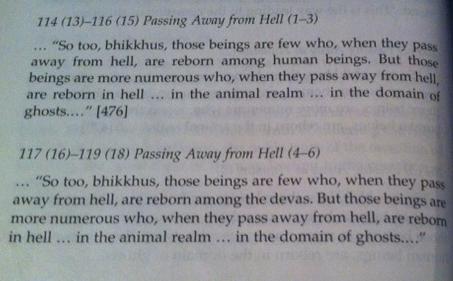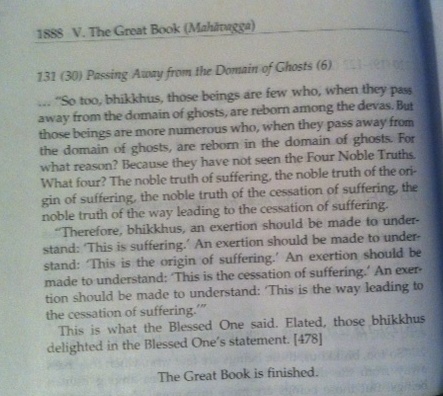I'm assuming that by "understand Buddhism" you mean achieving arahantship.
The Buddha is known as the "teacher of humans and devas" so at least both humans and devas.
In many suttas The Buddha gives teachings and instructions to devas.
Devas seem to be just like humans basically like extraterrestials, except most are longer-lived, experience more pleasure, are better looking with better brains, better senses, etc...many are possessed of iddhi.
It is also likely that others like nagas, asuras, yakkhas, and other beings intelligent enough would be able to understand Buddhism because Maha-samaya Sutta (DN 20) mentions some of them as having iddhi power and visiting and taking refuge in The Buddha.
Nagas seem to be humanoid reptile-like beings.
But in general most humans (and other beings in the universe) won't be able to understand Buddhism well enough to achieve arahantship and some are actually incapable.
"Monks, one who hasn't abandoned nine things is incapable of realizing
arahantship. Which nine? Passion, aversion, delusion, anger,
resentment, arrogance, insolence, envy, & stinginess. One who hasn't
abandoned these nine things is incapable of realizing arahantship."
(AN 9.62)
You could say that only arahants, paccekabuddhas, and sammasambuddhas understand Buddhism.
Also even beings that are willing and capable of achieving arahantship still won't, The Buddha uses similes of attempting to make a fire with wet wood:
"Then these three similes — spontaneous, never before heard — appeared
to me. Suppose there were a wet, sappy piece of timber lying in the
water, and a man were to come along with an upper fire-stick,
thinking, 'I'll light a fire. I'll produce heat.' Now what do you
think? Would he be able to light a fire and produce heat by rubbing
the upper fire-stick in the wet, sappy timber lying in the water?"
"No, Master Gotama. Why is that? Because the timber is wet & sappy,
and besides it is lying in the water. Eventually the man would reap
only his share of weariness & disappointment."
"So it is with any brahman or contemplative who does not live
withdrawn from sensuality in body & mind, and whose desire,
infatuation, urge, thirst, & fever for sensuality is not relinquished
& stilled within him: Whether or not he feels painful, racking,
piercing feelings due to his striving [for Awakening], he is incapable
of knowledge, vision, & unexcelled self-awakening. This was the first
simile — spontaneous, never before heard — that appeared to me.
"Then a second simile — spontaneous, never before heard — appeared to
me. Suppose there were a wet, sappy piece of timber lying on land far
from water, and a man were to come along with an upper fire-stick,
thinking, 'I'll light a fire. I'll produce heat.' Now what do you
think? Would he be able to light a fire and produce heat by rubbing
the upper fire-stick in the wet, sappy timber lying on land far from
water?"
"No, Master Gotama. Why is that? Because the timber is wet & sappy,
even though it is lying on land far from water. Eventually the man
would reap only his share of weariness & disappointment."
"So it is with any brahman or contemplative who lives withdrawn from
sensuality in body only, but whose desire, infatuation, urge, thirst,
& fever for sensuality is not relinquished & stilled within him:
Whether or not he feels painful, racking, piercing feelings due to his
striving, he is incapable of knowledge, vision, & unexcelled
self-awakening. This was the second simile — spontaneous, never before
heard — that appeared to me.
"Then a third simile — spontaneous, never before heard — appeared to
me. Suppose there were a dry, sapless piece of timber lying on land
far from water, and a man were to come along with an upper fire-stick,
thinking, 'I'll light a fire. I'll produce heat.' Now what do you
think? Would he be able to light a fire and produce heat by rubbing
the upper fire-stick in the dry, sapless timber lying on land?"
"Yes, Master Gotama. Why is that? Because the timber is dry & sapless,
and besides it is lying on land far from water."
"So it is with any brahman or contemplative who lives withdrawn from
sensuality in body & mind, and whose desire, infatuation, urge,
thirst, & fever for sensuality is relinquished & stilled within him:
Whether or not he feels painful, racking, piercing feelings due to his
striving, he is capable of knowledge, vision, & unexcelled
self-awakening. This was the third simile — spontaneous, never before
heard — that appeared to me." (Maha-Saccaka Sutta, MN 36)
No matter how hard someone tries to make a fire even if they are willing and capable if their method is wrong they won't succeed.
In the same way no matter how hard someone tries to achieve arahantship even if they are willing and capable if their method is wrong they won't succeed.
It is doubtful that there any arahants or paccekabuddhas in the world right now. Even during The Buddha's time with his assistance and teaching there were only a few thousand arahants in the world.
Since you could say that only arahants, paccekabuddhas, and sammasambuddhas understand Buddhism you could say that it is doubtful that anyone in the world right now understands Buddhism.
There probably are however some humans in this world who have achieved higher states (jhanas) and developed iddhi powers (concentration) but still haven't achieved arahantship (the ending of mental fermentations), and also many who mistakenly believe themselves to be enlightened.

